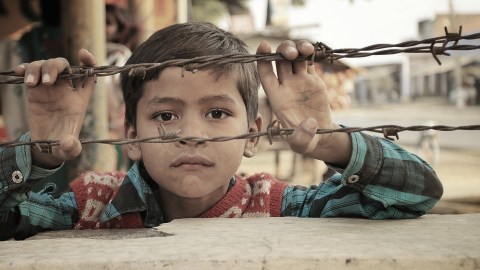Trauma in childhood leads to empathy in adulthood

- A new study suggests children who endure trauma grow up to be adults with more empathy than others.
- The effect is not universal, however. Only one kind of empathy was greatly effected.
- The study may lead to further investigations into how people cope with trauma and lead to new ways to help victims bounce back.
A new study published in PLOS One suggests that enduring a traumatic event in childhood can lead to higher levels of empathy as an adult. While it doesn’t apply to every form of empathy, it does show how hardships can be overcome and even turned into growth opportunities.
How did they find that out?
The first experiment asked 387 of adults if they had experienced childhood trauma, such as the death of a close friend or family member, a divorce in the family, being subjected to violence, or sexual abuse. Subjects were then asked to fill out an EQ quiz to determine how empathetic they were. A second survey involved 442 participants and used the IRI test to measure empathy levels.
But while both studies found that the test subjects who had endured trauma showed traits of affective empathy, defined as “the ability respond to another person’s mental state with an appropriate emotion,” only the second test showed them scoring higher than those who didn’t suffer trauma on cognitive empathy, explained by the researchers as “the ability to understand another’s thoughts and feelings.”
The authors suggested that the differences between the two tests used might account for this, but they also proposed that cognitive empathy might not be used as frequently when recovering from a traumatic event as affective empathy.
What are the caveats to this study?
The study relies on self-reporting and retrospective accounts of trauma. It also relies on people judging how well they agree with questions like “I can tune into how someone else feels rapidly and intuitively.” Lead author David M. Greenberg said that this was an issue and that “Future studies need to use a longitudinal approach.”
The authors also warn that they have found a correlation between experiencing trauma and having greater levels of empathy. While they propose that correlation is caused by individuals who can develop these skills to avoid the more horrid effects of childhood trauma, they cannot rule out another mechanism being the cause.
So, does this mean what doesn’t kill me makes me stronger?
The negative side of these experiences shouldn’t be overlooked. People who go through these traumas as children are more likely to suffer a range of mental and emotional issues. These findings do suggest, however, that there is a way forward after a traumatic event or a severe loss. Dr. Greenberg summated the findings by saying “Readers of this study should take away that there are pathways to personal growth and resilience after experiencing a trauma.”





